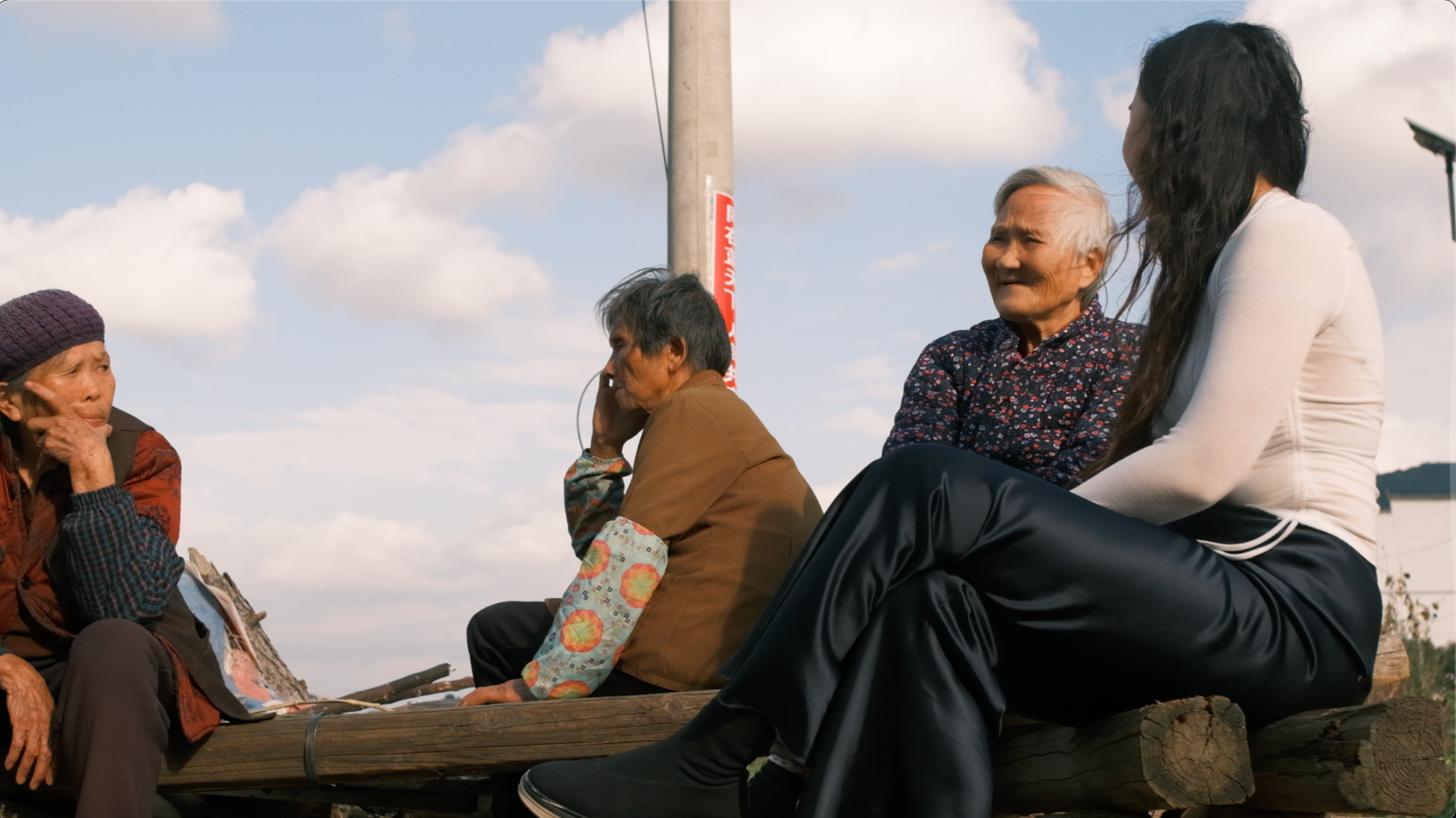This piece is part of a special portfolio about youth and contemporary culture in China. Read more from the portfolio here.
By JINJIN XU
I try to feel this is home 1
I don’t think
I am a foreigner 2
I was not supposed to be living 3
没有归属感,没有奔头4
Last year I lost my mom, I hope
she’s still alive. 6
I was not supposed to be. 3
I can tell you my story, I know that you
feel bad and sorry, but 6
I can’t speak. I understand, but
speaking power still
I’m not having a speaking power. 7
I am a foreigner 2 still alive. 5
Ask me a question,
I could pretend
like a mad person. That was the only chance I had. 3
Enough.
Enough. 8
Nothing is like home. 1 Everyday I lose, 9
没有归属感,没有奔头 5
My will to wait more. 9
让我活下去 10
I dreamed 12 still alive 5
not to get separate from them. 11
At some point you realize
you don’t actually
you don’t have any power, 1
当时我很想家,很想家,真想家 12
I try to feel, 1
Still 5 I try. 1
1. Rabia / 2. Paty / 3. Florence / 4. 王艺烨 / 5. Seraya / 6. Anna / 7. Robina / 8. Fatima / 9. Aswera / 10. Mai / 11. Shrvthi / 12. 胡欣
“Nüshu are stars weeping in the night sky,” recalls 84-year-old Grandma He, the only living heir of Nüshu. Nüshu, literally meaning women’s script, has existed in secret for centuries, passed on between women in China’s Hunan province. Denied access to formal schooling, women would write in secret to each other with branches and cooking ashes, destroying it before the men came home—the script’s survival hinging upon its self-erasure.
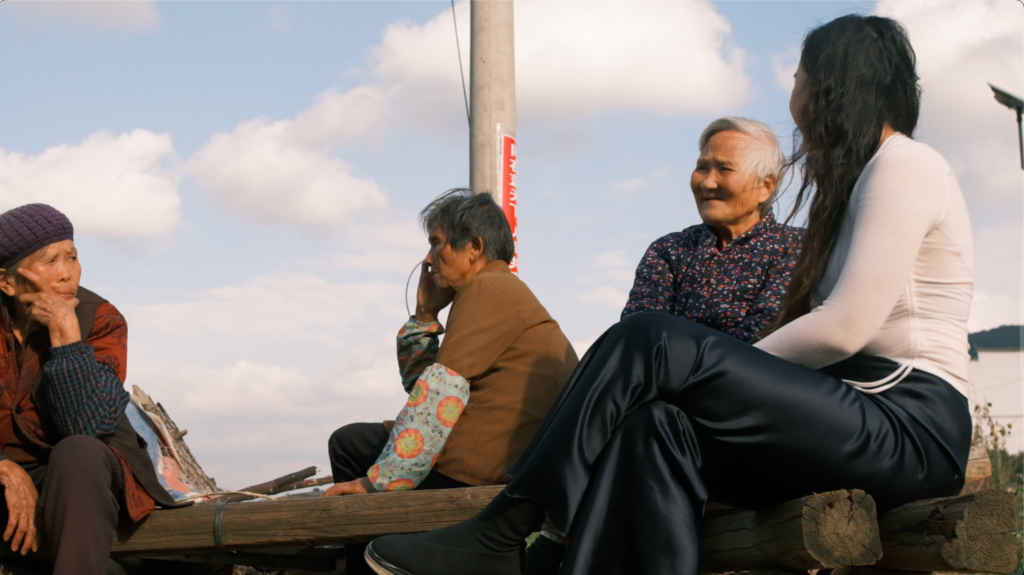
Xu sits with Grandma He, the last natural heir of Nüshu, and her two friends next to her home in Jiangyong. Still from Xu’s documentary film, “Outside Women’s Café (2023)”. Image courtesy of the artist.
The script takes the form of a willow-like text, distinctive from traditional Chinese text in its thin shape and elegance. Whenever Grandma He’s grandmother taught her to write the script, she would cry, as if the physical act of writing the script is an act of confession. The most famous case of survival for the script is found in “三朝书,” a book of tears given to the bride on the day of her wedding, written collectively by her “sisters”—women of the same generation in the village who took on a pact of sisterhood.
The book often contains advice for the bride regarding the trials of marriage, and it also contains empty pages for the bride to fill in in moments of loneliness. Before the date of the wedding, the sisters would come together in a month-long ritual of grieving and tears to create this book. The book is often of such significance to the bride that it would be cremated and buried along with her.
For the past eight years, I have been working on the series: “What Would You Say If You Could?”—drawing from my travels across eleven countries recording the secrets and testimonies of dislocated mothers, eventually returning to the village of JiangYong in Hunan province, near my mother’s hometown (I wrote about my mother’s hometown for The Common in 2016, my first piece of published nonfiction).
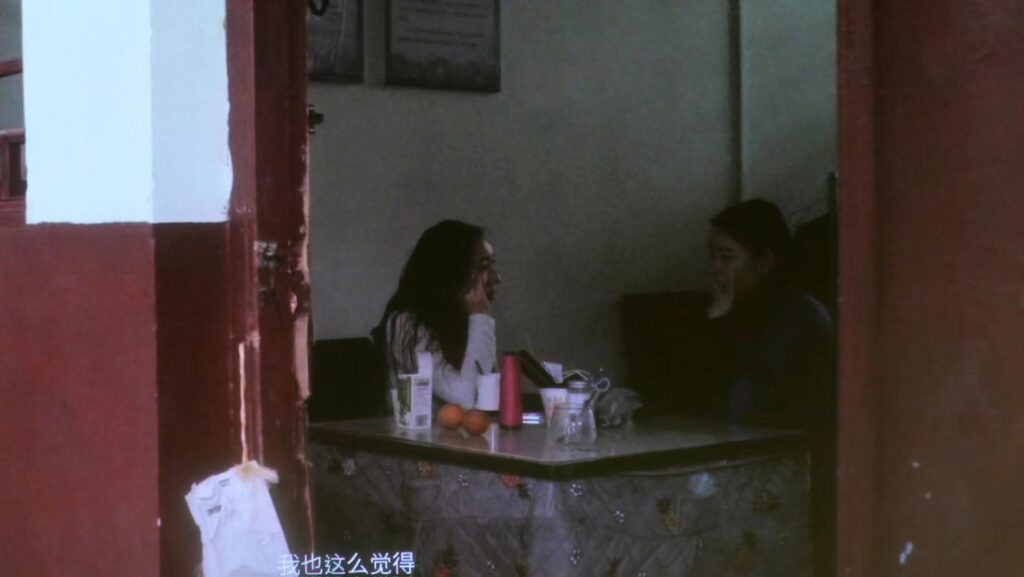
Xu sits with Hu Xin, the youngest teacher of Nüshu at the Nüshu Musem in Jiangyong. Still from Xu’s documentary film, “Outside Women’s Café (2023).” Image courtesy of the artist.
In my installation created for the How Art Museum, the voices collected from women in various states of dislocation around the world creates a collective soundscape. Here are the voices of sixty-four women collected over the span of eight years—stories that correspond with the “secrets” written in Nüshu in the installation. The installation also includes a collective poem written from the secrets in the installation.
Each chain of “text” is the secret of one woman, listened to and sculpted in collaboration with Grandma He and Hu Xin, the youngest teacher of the text. The script is molded from resin using ashes collected from the village fires, and each chain clangs against a vessel (also collected from the village), until it inevitably destroys itself throughout the duration of the exhibit.
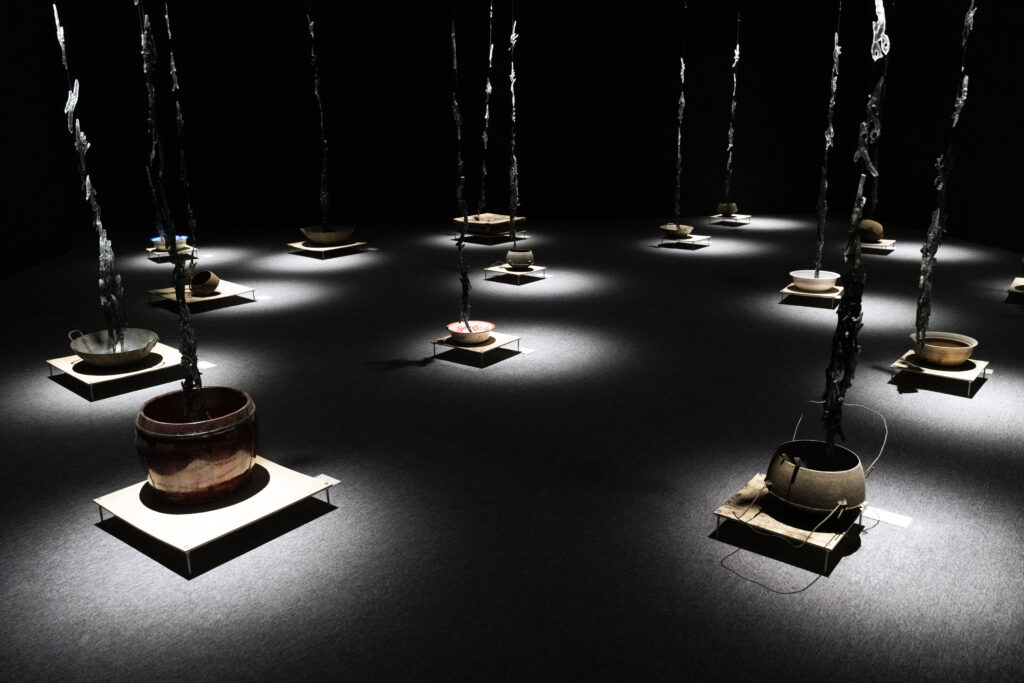
Installation view of “What Would You Say If You Could? #8: Against This Earth, We Knock” at How Art Museum, Shanghai. Resin, ashes (collected from JiangYong), motor, string, wooden platform, speakers, pan (collected from Jiangyong), 2023. Image courtesy of the artist.
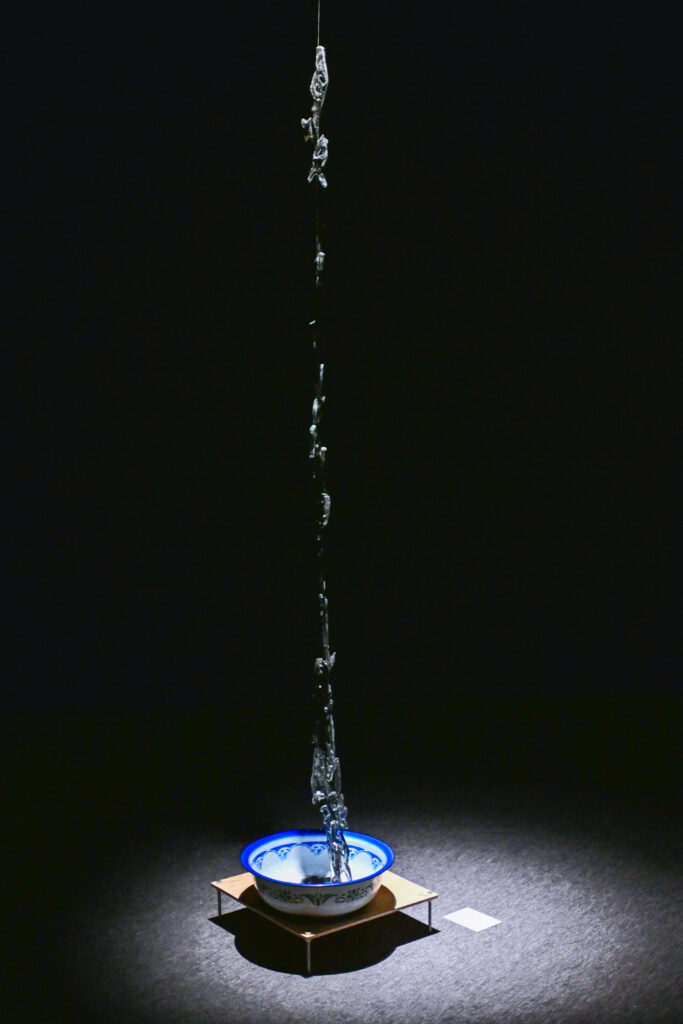
Installation view of “What Would You Say If You Could? #8: Against This Earth, We Knock” at How Art Museum, Shanghai. Resin, ashes (collected from JiangYong), motor, string, wooden platform, speakers, pan (collected from Jiangyong), 2023. Image courtesy of the artist.
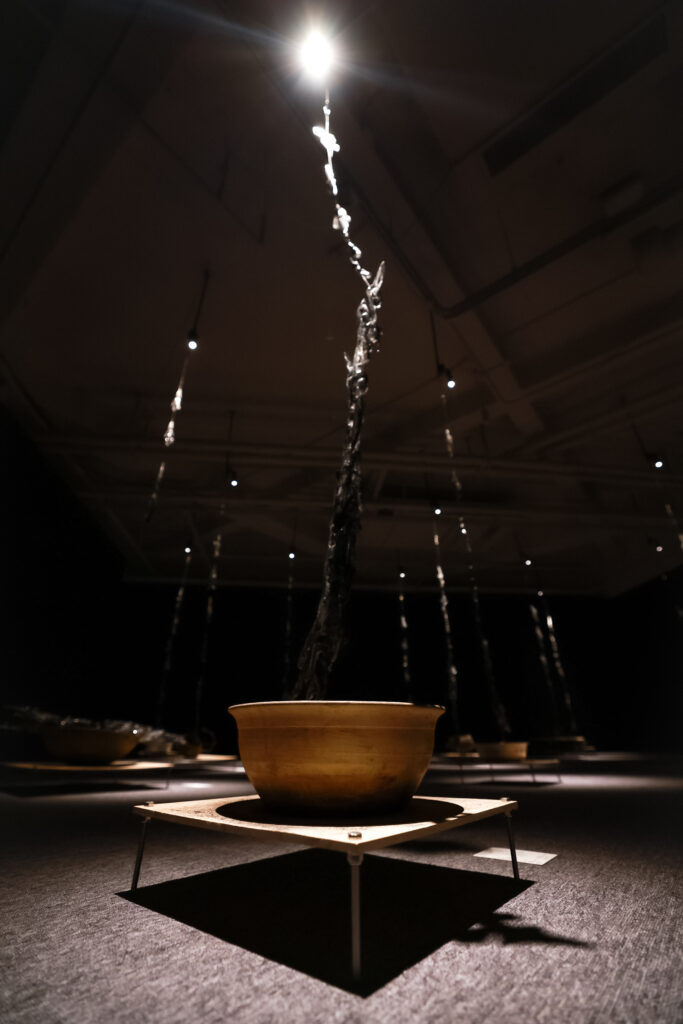
Installation view of “What Would You Say If You Could? #8: Against This Earth, We Knock” at How Art Museum, Shanghai. Resin, ashes (collected from JiangYong), motor, string, wooden platform, speakers, pan (collected from Jiangyong), 2023. Image courtesy of the artist.
“Against this earth, we knock” is the working title of my in-progress poetry manuscript—while knocking is inherently an act of worship, it is also a way of expressing the unspeakable through our bodies, desperate to be heard.
JinJin Xu is a poet and artist based in Shanghai and New York. Xu’s inter-disciplinary work is birthed from poetry, realizing itself in various forms of docu-poetics. Her installations, films, and performances have been exhibited at the 13th Shanghai Biennial, the Harun Farocki Institute, the Immigrant Artist Biennial, and more. Most recently, her solo exhibition “Against This Earth, She Knocks” debuted at How Art Museum, Shanghai. Her debut poetry collection, There Is Still Singing in the Afterlife, won the Own Voices Chapbook Prize. She is the 2020 winner of the Poetry Society of America’s George Bogin Memorial Award. After attending Amherst College, she spent a year as a Thomas J. Watson Fellow recording docu-poems with women dislocated across nine countries. She received her MFA in Poetry from NYU, where she was a Lillian Vernon fellow. In 2023, she was named one of the “100 Most Influential Chinese” by Forbes China.
